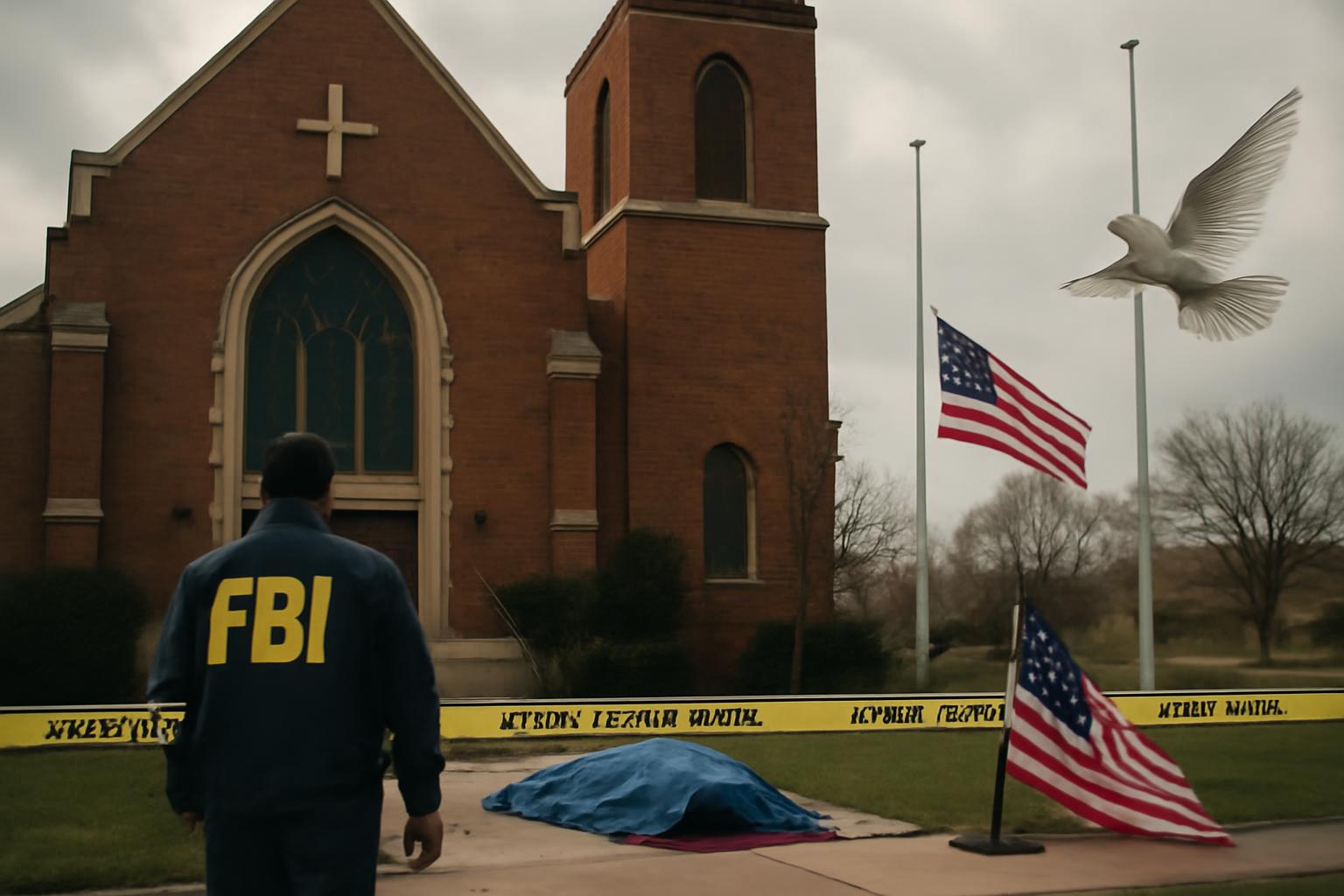Two days after a deadly shooting during a church service at a Catholic elementary school in Minnesota, investigators say the motive may be domestic terrorism and a hate crime against Catholics. The gunman, 22, owned the weapons legally and, according to the Homeland Security Secretary, had no notable prior criminal record. He fired through the church windows, killing two children aged eight and ten and wounding 17 others, including 14 children; the shooter then took his own life in the parking lot outside the school. The FBI has said it will determine whether this was an act of domestic terrorism and a hate crime. In response, the President spoke of prayers and ordered half-mast flags at the White House, embassies, and other public buildings; Minnesota’s governor and the mayor of Minneapolis expressed horror, noting that the children were “shot literally during prayer.” The Pope offered condolences to the victims’ families. The report places the incident in the broader context of ongoing gun violence in the country, pointing to related events in 2024 and 2025.
What this tragedy lays bare is the delicate architecture of a free society, built not by grand designs but by the quiet, stubborn discipline of law, custom, and voluntary association. It tests a civilization’s judgment about the balance between security and liberty, and it exposes how fragile social order becomes when fear crowds out trust. Too readily, the instinct is to frame the act as a simple crisis to be cured by more powers, more surveillance, more centralized control. Yet the essence of a free society is that safety cannot be bought by decree or engineering, but emerges from the predictable rule of law and the persistent, local enforcement of rights across communities. The danger here is not only the violence itself, but the temptation to suspend civil liberties in the name of safety, thereby hollowing out the conditions that allow peaceful cooperation to arise and endure.
If there is a policy takeaway, it is not a single corrective but a recommitment to the rule of law as the safeguard of liberty: rigorous due process, proportional enforcement against those who threaten others, and a steady respect for individual rights that permits churches, schools, and neighborhoods to function as autonomous centers of moral life. The plausible remedy to this wound lies in strengthening what already binds society—the informal networks of care, the public institutions that operate under clear, stable rules, and the quiet resilience of people who attend to one another in times of fear. Healing will come not from chasing every new label or expanding power, but from preserving the conditions under which voluntary cooperation can flourish, even amid the shadows of violence.
